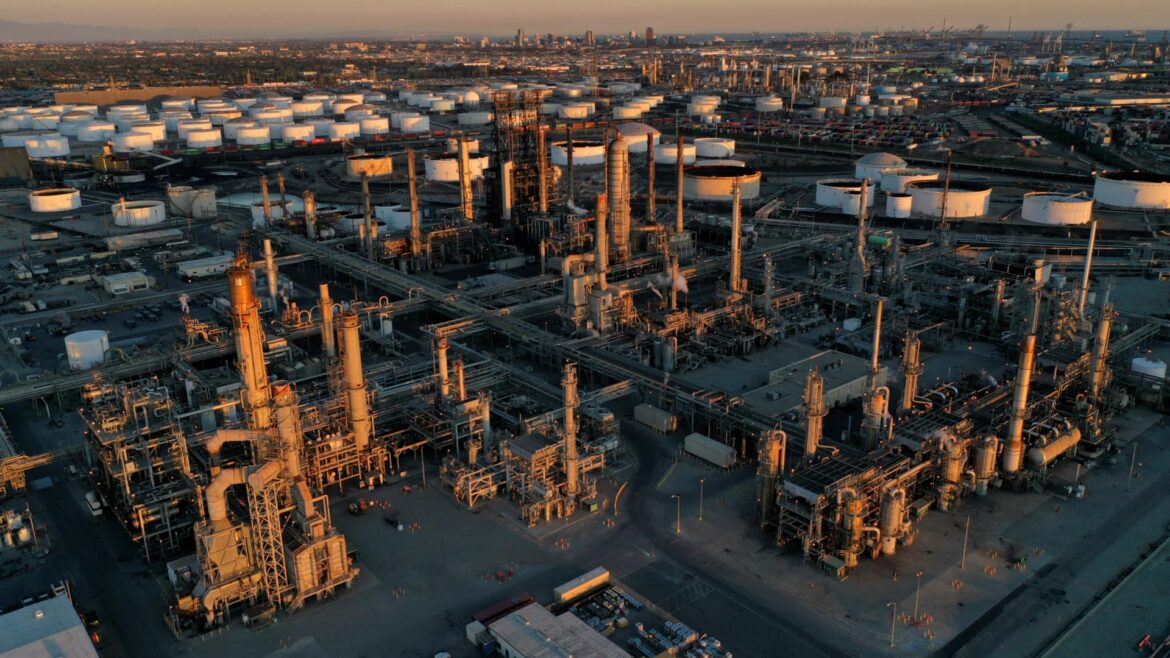The price of global benchmark Brent crude oil could spike to $100 a barrel if Iran directly attacks Israel, a former senior White House energy official said. Bob McNally, founder and president of Rapidan Energy, said global crude markets still have not factored in $10 of geopolitical risk to oil prices even as tensions are running red hot in the Middle East. “If the Iranians attack Israel directly, meaning the weapon emanated from the territory of Iran and landed in the territory of Israel, including an embassy, then crude oil prices will head to and above $100 a barrel,” said McNally, who served on President George W. Bush’s National Security Council as senior director for international energy. Crude oil futures rose more than 1% on Wednesday with Brent settling at $90.48 a barrel as the U.S. braces for an imminent attack by Iran against Israel. Washington believes a major missile or drone strike by Iran, or its proxies, against military and government targets in Israel could happen in the coming days, people familiar with the intelligence told Bloomberg News . @LCO.1 YTD mountain Brent crude oil, YTD Oil rallied last week after a missile attack destroyed Iran’s consulate in Damascus, Syria, killing seven Iranian military officials. Israel has not claimed responsibility for the strike, but the U.S. has assessed that Israel is responsible. OPEC member Iran and Israel appeared Wednesday to be teetering on the brink of a cycle of direct confrontation. Supreme Leader Ayatollah Ali Khamenei said Israel “will be punished” for the attack on Iran’s consulate in Damascus. “Consulates and embassies of any country are regarded as the soil of that country. When they attack our consulate, it means that they have attacked our soil,” Khamenei said during a speech in Tehran, Iran, after leading prayers for the Eid al-Fitr holiday. Israel warned Iran on Wednesday it would strike back against the Islamic Republic if Tehran attacks Israel. “If Iran attacks from its territory, Israel will react and attack Iran,” Israeli Foreign Minister Israel Katz said on the social media platform X , tagging Ayatollah Khamenei. McNally said a cycle of strikes between Israel and Iran would create an escalation dynamic that could pull the U.S. into the conflict, a scenario he called “Iran contagion” risk. If the situation gets out of hand and there is a disruption in the Strait of Hormuz, Brent prices could surge to $120 or $130 a barrel, McNally said. The Strait of Hormuz is a key waterway through which 18 million barrels of oil pass from the Persian Gulf to the global market daily, according to data from trade analytics firm Kpler. Rapidan Energy has put the odds of a disruption in the strait at 30%. “While Washington and Tehran probably share a desire to contain the escalation, Israel is a changed country after 10/7 and is moving and will continue to move to address its security risks,” McNally said, referring to the date of the Hamas attack against Israel that killed more than 1,200 people, mostly civilians. U.S. crude and the global benchmark Brent have surged about 20% and 17%, respectively, this year as geopolitical risks mount against the backdrop of a tightening oil market with demand expected to outpace supply this year, according to the major national and international energy agencies. Threat to economy, Biden campaign Surging energy prices are increasingly becoming a problem for the Biden administration with the presidential election just around the corner, McNally said. Gasoline futures have rallied even harder, spiking 32% since the start of the year. “There are few issues that terrify a sitting American president in an election year more than surging gasoline prices,” McNally said. Rising gasoline prices played a major role in March inflation data coming in hotter than expected, he said, and has investors questioning whether the economy will clinch a soft landing this year. Daniel Yergin, vice chairman of S & P Global, said oil prices above $90 present a problem for the broader market. “It’s also a problem for inflation in general, and it’s a real problem if you’re an incumbent running for reelection,” Yergin told CNBC’s ” Squawk Box ” on Monday. The White House faces the added dilemma of Ukrainian drone strikes against Russian oil refineries. Kyiv has hit 18 refineries so far this year with a total annual capacity of 3.9 million barrels per day, according to JPMorgan. The investment bank estimates that about 670,000 barrels per day of Russian refining capacity is currently offline due to the attacks. The losses to Russian energy infrastructure could worsen if Ukraine hits its target of producing 1 million drones domestically in 2024, Natasha Kaneva, head of global commodities strategy at JPMorgan, told clients in a research note earlier this month. Defense Secretary Lloyd Austin made clear that the Biden administration is worried about rising energy prices during congressional testimony Tuesday. “Certainly, those attacks could have a knock-on effect in terms of the global energy situation,” Austin told the Senate Armed Services Committee. “Quite frankly, I think Ukraine is better served in going after tactical and operational targets that can directly influence the current fight.”


